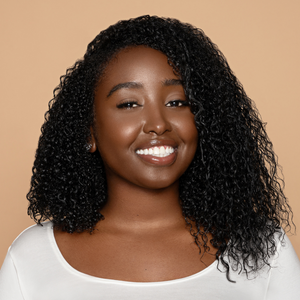
Welcome to another ingredient spotlight! We all know how difficult it can be to choose a shampoo. It's not as simple as choosing beneficial and natural oils, because your shampoo needs to clean your hair and scalp too. The market for shampoo has expanded in recent years to offer a wider selection of sulfate-free shampoos than ever before, but many shampoos still contain damaging chemicals that dry out natural hair.
Some people with natural or curly hair address this problem by eliminating shampoo from their regimen altogether, but oils, products, and dirt will eventually build up on your scalp if you don't cleanse it regularly. This buildup will stop hair growth, make your hair dull and limp, and put your scalp at risk of infection.
NaturAll Club recently released an all natural shampoo that's free from damaging, drying, and toxic ingredients! (Check it out here.) This is the option that so many have been waiting for- a product that cleanses your hair without causing damage!
But some Naturals don't want even to use an all-natural shampoo, and some use an alternative: baking soda. This treatment works well for many individuals, making hair clean, revived, and softened. It is also environmentally friendly and cost effective. But other people report that a few months of using baking soda leads to dry, frizzy, damaged hair. Can you get the benefits of baking soda without damaging your hair? Let’s find out.

What is baking soda and how does it work?
Baking soda (or sodium bicarbonate) has been around since ancient times. Unlike shampoo, which contains many different ingredients and chemicals, baking soda only contains one compound: NaHCO3. This compound is a salt comprised of sodium and bicarbonate ions.
Baking soda has a high pH of 9, making it an effective acid-neutralizer and cleanser. ¼ teaspoon of baking soda in a cup of water can soothe indigestion, and you’ve probably used baking soda to clean your kitchen or control the smell in your fridge. (Fun fact: baking soda neutralizes acid by combining to form carbon dioxide, a gas. This is why baking soda is used in baking- it reacts with other ingredients and heat to produce gas, causing cakes to rise!)
Baking soda’s alkali pH makes it an excellent cleanser for your scalp and hair. It removes dirt and buildup from the scalp, leaving it clean. But the normal pH of your scalp is acidic, with a pH between 4 and 5. Outside of this pH window, your hair cuticles open and lose moisture, making your hair rough, frizzy, dry, and less manageable.
With its pH of 9, baking soda is actually outside of the “safe zone” for your scalp. When incorrectly diluted or applied, it can easily disrupt the pH balance of your scalp and damage your hair. The crystal structure of baking soda can also be abrasive and irritate the scalp. This is why many individuals have bad experiences with it, and why you have to to use it carefully.
However, when used correctly, baking soda does clean, soften, and revive your hair. So how do you use it correctly?

How to wash your hair with baking soda
1. Dilute it properly and don’t leave it in too long. You might see instructions online to mix baking soda with water using a 1:3 ratio to form a paste. While this might benefit your hair for a few uses, it will damage your hair over time. It takes a LOT of water to lower the pH of baking soda into the safe zone.
Instead of forming a paste, we recommend mixing 1 teaspoon of baking soda in a 16-oz bottle of water. You’ll end up with a cloudy solution that is still very powerful. Pour some of this solution into your hair and massage it into your scalp. After two minutes, rinse out the solution thoroughly (any baking soda left behind will leave a residue and irritate your scalp.)
2. Follow with apple cider vinegar. Once your hair is clean, you need to return your scalp pH to its normal pH of 4-5. Otherwise, your hair will dry out and be frizzy. Read this article on how to do an apple cider vinegar rinse to restore pH balance. This treatment is simple, quick, and smooths and softens your hair!
3. Deep Condition your hair. There is no better way to enrich your hair with moisture after a deep clean! We recommend NaturAll Club's Avocado Deep Conditioners which only contain natural ingredients that soothe your scalp and nourish your hair.
4. Listen to your hair. Pay attention to how your hair feels after the baking soda, wash. How does your hair feel the next day, or a week later? If your hair feels dry or brittle, you might want to use less baking soda in your wash, or give your hair some time before you do another rinse.
If your hair likes the baking soda wash you might want to start using it once every two weeks and replace shampoo completely. Other naturals might be more comfortable alternating baking soda with shampoo, or only using baking soda once every couple months for a really deep clean. Still other individuals shouldn’t use baking soda at all, especially if your hair feels very dry or irritated after the treatment. Remember that everyone’s hair is unique, and the most important thing is to find products and a regimen that work for you!














